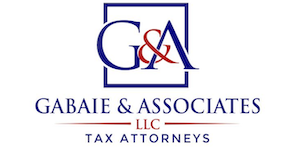When does a tax dispute escalate to U.S. Tax Court?
Attorney Juda Gabaie explained that tax court becomes necessary when the IRS issues a Notice of Deficiency or a Notice of Determination. A Notice of Deficiency is essentially the government’s statement that a taxpayer owes a specific amount, giving the individual 90 days to file a petition with the U.S. Tax Court. This usually comes after an audit and appeal have failed to resolve the matter.
A Notice of Determination occurs when the IRS has denied a taxpayer’s request for a specific payment plan or resolution. At that point, the taxpayer also has the right to petition the Tax Court. According to Gabaie, litigation is most appropriate when the stakes are high, the amount in dispute is significant, and administrative remedies have been exhausted.
What is the process of representing clients in U.S. Tax Court?
Once a petition is filed, the IRS assigns counsel to the case, and the matter may be directed to an appeals officer to attempt settlement before trial. Unlike criminal proceedings, there are no juries in tax court. Cases are heard by a single judge, and the process is streamlined to focus on resolution.
Taxpayers may proceed under the informal rules if the amount in dispute is under $50,000, but if the liability exceeds that, the case must proceed under formal rules. Gabaie emphasized that while tax court can be complex, it often provides opportunities for favorable settlements.
What types of disputes most often lead to tax court?
Recurring disputes that often escalate to tax court include:
- Substantiation issues from audits
- Disallowed deductions or increased income assessments
- Hobby loss vs. business activity classifications
- Accuracy-related penalties
- Worker classification disputes (independent contractor vs. employee)
- Reasonable compensation disputes
- Trust fund recovery penalties
Gabaie noted that the majority of cases involve either audit substantiation disputes or collection due process cases where taxpayers are unsatisfied with a Notice of Determination.
What are the advantages of taking a case to tax court?
Tax court offers unique leverage unavailable in administrative processes. First, taxpayers gain access to an impartial judge who provides independent judicial review rather than relying on an IRS employee. In some cases, if the taxpayer introduces credible evidence and maintains proper records, the burden of proof shifts to the IRS, which can significantly strengthen the taxpayer’s position.
Tax court also provides expanded discovery tools, allowing attorneys to compel the IRS to disclose critical information. Additionally, cases in tax court create binding precedents and open the door to settlement opportunities with IRS Chief Counsel.
How should clients prepare for the challenges of tax court?
Gabaie stressed that preparing a client for tax court involves legal, emotional, and financial readiness. Legally, a thorough case analysis is necessary, including gathering evidence, reviewing documentation, and developing clear settlement strategies. Clients must also understand the rules of procedure and discovery.
Emotionally, taxpayers must prepare for the stress, time, and uncertainty of litigation. Financially, tax court can be expensive, so it is important to weigh the cost against the potential outcome. Gabaie explained that clients should only pursue litigation if there is a realistic chance of success.
What are some real-world examples of success in tax court?
Gabaie shared examples of cases where litigation led to significant victories for his clients. In one case, a business owner faced hundreds of thousands of dollars in disallowed deductions. After providing organized and detailed documentation in tax court, Gabaie successfully demonstrated the legitimacy of the expenses, reducing the liability to nearly nothing.
In another case, a client was hit with a substantial accuracy-related penalty. By petitioning the tax court and arguing that the penalty did not comply with IRS regulations, Gabaie persuaded IRS Chief Counsel to remove the penalty entirely. These cases highlight the power of litigation when supported by strong facts and arguments.
How can taxpayers choose the right tax court attorney?
For taxpayers considering litigation, Gabaie advised selecting an attorney who specializes exclusively in tax controversy and tax court litigation. Just as someone with a heart condition seeks a cardiologist rather than a general practitioner, taxpayers should seek legal representation from an attorney with deep expertise in tax law and IRS procedures.
Reputation and prior experience matter significantly. Attorneys who regularly interact with IRS appeals and chief counsel are more likely to achieve favorable outcomes because they understand negotiation tactics and court procedures. Gabaie emphasized that due diligence is key when hiring a tax court attorney to ensure the best chance of success.
